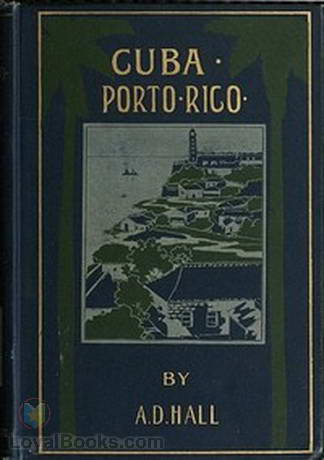Porto Rico Its History, Products and Possibilities... By: Arthur D. Hall |
|---|

In "Porto Rico: Its History, Products and Possibilities" by Arthur D. Hall, readers are taken on an engaging journey through the captivating history and promising potential of this beautiful Caribbean island. Hall's meticulous research and comprehensive exploration of Porto Rico's past make this book an invaluable resource for anyone seeking a deeper understanding of the region.
One of the highlights of Hall's work is his meticulous attention to historical detail. Through extensive research and references to various sources, the author constructs a captivating narrative that spans from Porto Rico's early colonial period to its eventual transition into an American territory. Every chapter is rich in content, delving into the island's social, cultural, and political development over time.
What sets this book apart is Hall's ability to seamlessly intertwine the island's history with its untapped potential. He sheds light on Porto Rico's abundant natural resources, diverse agriculture, and strategic geographic location, all of which contribute to its incredible economic prospects. Hall's deep knowledge and genuine enthusiasm for Porto Rico's future make this book not only a historical account but also a source of inspiration for readers interested in the island's potential for growth and prosperity.
Moreover, Hall's writing style is both engaging and accessible. He presents complex historical narratives and economic analyses in a clear and straightforward manner, ensuring that readers of all backgrounds can easily follow along. The inclusion of maps, diagrams, and photographs further enhances the reading experience, allowing readers to visualize and better understand the topics discussed.
While Hall's work is undoubtedly comprehensive, some readers might find its focus on historical and economic aspects somewhat limiting. While he briefly mentions cultural aspects such as music, literature, and art, a more in-depth exploration of Porto Rico's cultural heritage would have added another layer of richness to the book. However, considering the book's already extensive scope, this is a minor drawback in an otherwise outstanding piece of research.
"Porto Rico: Its History, Products, and Possibilities" is an exceptional book that successfully weaves together the island's fascinating history with the potential it holds for the future. Arthur D. Hall's thorough research, accessible writing style, and genuine enthusiasm make this book a must-read for those interested in the Caribbean's complex sociopolitical landscape and the promising opportunity Porto Rico presents. Whether you are a history enthusiast, an economist, or simply curious about this captivating island, Hall's work will undoubtedly leave you enlightened and inspired. |